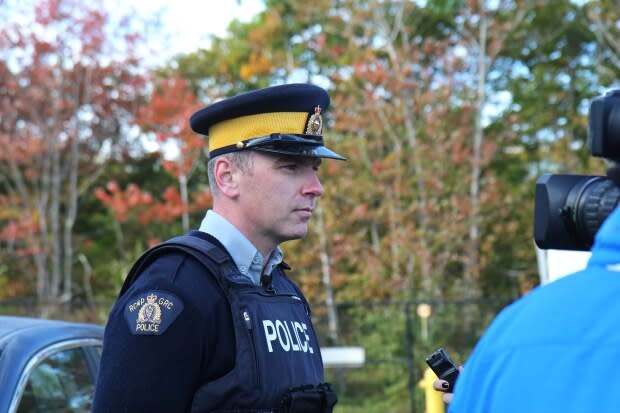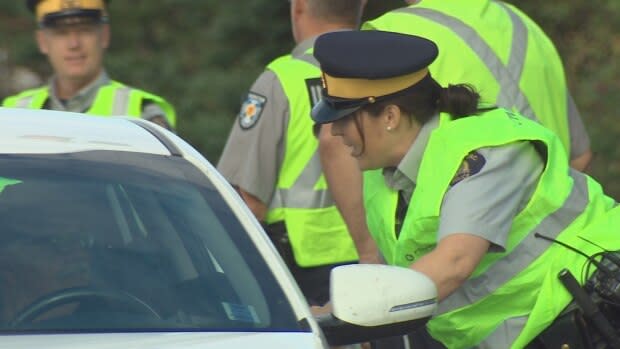Cannabis-impaired driving on the rise since legalization, say Nova Scotia RCMP
The RCMP in Nova Scotia have seen a jump in the number of people driving while high since cannabis was legalized back in 2018.
Const. Chad Morrison, a provincial drug recognition expert with RCMP traffic services, said there has been "maybe a 30 to 40 per cent increase in terms of the numbers of arrests and the number of drug evaluations that we've been conducting."
That brings the drug-impaired driving arrests up to 5-10 a month across the province, said Morrison.
While that might not sound like a lot, it's more than enough to worry Morrison. "There are many, many collisions that are the result of drugs," he said
After using cannabis, a driver's judgment is thrown off and their ability to perceive and respond to threats on the road is hampered, making them dangerous, said Morrison.
But there is some uncertainty around what might be causing the increase.

"It's hard to say if that's because there's more of that taking place, you know, in terms of the drug use and the impaired driving or that it's that our officers are a little more engaged in that form of enforcement."
Morrison said the RCMP ramped up their training prior to legalization so more officers could recognize the signs of cannabis impairment. They were supplied with roadside drug screening devices to better detect drugs.
All of which may have led police to catch more people.
Across Nova Scotia there are approximately 250 RCMP members with training related to drug-impaired driving. Thirty-three are drug recognition experts, according to an RCMP news release.
Drivers and their passengers are also storing their cannabis products in their cars illegally.
Morrison and other officers often spot cannabis within arm's reach of the driver. He said people are not allowed to have cannabis products "open or readily accessible to anybody that is within the vehicle."

"If you're going to be transporting cannabis in a vehicle the trunk is the proper place for it," he said.
He believes better educating people about the dangers of driving while high is one of the only ways to convince people to stop. Morrison said if someone suspects a driver is impaired they should call 911 immediately.
"The bottom line is that if you take something into your body and it causes impairment you can't be on the road because you're a danger to yourself and others," he said. "So impairment is impairment, the substance that's causing that impairment is sort of irrelevant."
A spokesperson for Halifax Regional Police said they have a small collection of data on cannabis-impaired driving and can't comment on any trends.
HRP charged 13 people with driving while impaired by drugs in 2019. Cannabis was suspected to be a factor in 10 of those cases.
In 2018, they charged 21 people for driving while impaired by drugs. Before legalization they did not track cannabis impairment separately.
MORE TOP STORIES

